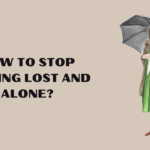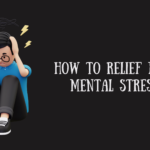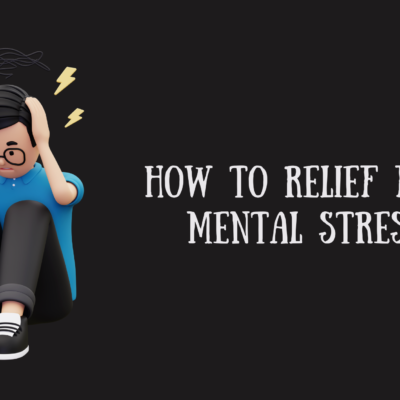How to Stop Being so Anxious all the Time?
How to Stop Being so Anxious all the Time: Anxiety is a natural human response to stress, uncertainty, and perceived threats. However, when anxiety becomes a constant presence in your life, it can be overwhelming and exhausting. If you find yourself always anxious, it’s essential to take steps to regain control and find inner peace. This guide explores various techniques to help you reduce anxiety and lead a calmer, more fulfilling life.
Also Read:
Understanding Anxiety
Anxiety manifests in different ways, including excessive worrying, restlessness, rapid heartbeat, sweating, and difficulty concentrating. It can stem from various factors, such as genetics, environment, past trauma, or lifestyle habits. Recognizing the root cause of your anxiety is the first step toward managing it effectively.
1. Identify Your Anxiety Triggers
One of the most effective ways to reduce anxiety is to identify the specific triggers that cause it. Keeping a journal can help track situations, thoughts, or people that make you anxious. Once you identify patterns, you can work on strategies to manage or avoid these triggers.
Common Anxiety Triggers:
- Work-related stress
- Social situations
- Financial worries
- Health concerns
- Uncertainty about the future
- Negative self-talk
2. Practice Deep Breathing Techniques
Breathing exercises help calm the nervous system and reduce anxiety symptoms. A simple yet powerful technique is the 4-7-8 breathing method:
- Inhale deeply through your nose for 4 seconds.
- Hold your breath for 7 seconds.
- Exhale slowly through your mouth for 8 seconds.
- Repeat this cycle for a few minutes.
This technique helps lower heart rate and induces relaxation, making it easier to manage anxiety in the moment.
3. Engage in Regular Physical Activity
Exercise is a natural stress reliever that releases endorphins, the body’s feel-good hormones. Regular physical activity reduces cortisol levels and promotes relaxation.
Best Exercises for Anxiety Relief:
- Walking or jogging
- Yoga and stretching
- Strength training
- Dancing
- Swimming
Even a short daily walk in nature can significantly improve your mood and reduce anxious thoughts.
4. Limit Caffeine and Sugar Intake
Caffeine and sugar can contribute to increased anxiety levels by stimulating the nervous system. Try reducing coffee, energy drinks, and processed sugar intake to see if your anxiety decreases. Instead, opt for herbal teas like chamomile or green tea, which have calming effects.
5. Develop a Healthy Sleep Routine
Lack of sleep can worsen anxiety, making it essential to establish a consistent sleep schedule. Aim for 7-9 hours of quality sleep per night.
Tips for Better Sleep:
- Avoid screens (phones, TVs, computers) at least an hour before bedtime.
- Create a relaxing nighttime routine, such as reading or taking a warm bath.
- Keep your bedroom cool, dark, and quiet.
- Avoid caffeine and heavy meals before bedtime.
6. Challenge Negative Thoughts
Anxiety often stems from negative or irrational thoughts. Cognitive Behavioral Therapy (CBT) techniques can help challenge and replace these thoughts with more balanced perspectives.
How to Reframe Negative Thinking:
- Identify the anxious thought (e.g., “I’m going to fail this presentation.”)
- Question its validity (“Is there real evidence that I will fail?”)
- Replace it with a rational statement (“I have prepared well, and I will do my best.”)
By practicing this habit, you can train your brain to think more positively over time.
7. Practice Mindfulness and Meditation
Mindfulness involves focusing on the present moment without judgment. Regular meditation can help train your mind to let go of anxious thoughts.
Simple Mindfulness Techniques:
- Focus on your breath and observe its rhythm.
- Engage in body scan meditation, where you pay attention to different parts of your body.
- Use guided meditation apps like Headspace or Calm.
- Practice gratitude by listing three things you’re thankful for daily.
8. Stay Connected and Seek Support
Talking to someone you trust about your feelings can help relieve anxiety. Whether it’s a friend, family member, or therapist, sharing your concerns can make you feel less alone.
Ways to Stay Connected:
- Join a support group
- Schedule regular meetups with friends
- Talk to a professional therapist
- Engage in community activities or volunteer work
9. Manage Time and Prioritize Tasks
Overloading your schedule can lead to overwhelming anxiety. Learning to manage time effectively can help reduce stress levels.
Time Management Tips:
- Use a planner or to-do list.
- Prioritize tasks by urgency and importance.
- Break large tasks into smaller, manageable steps.
- Set realistic deadlines and avoid multitasking.
10. Reduce Exposure to Negative News and Social Media
Constant exposure to negative news and social media comparisons can fuel anxiety. Limit your screen time and be mindful of the content you consume.
Healthy Digital Habits:
- Set specific times for checking news updates.
- Unfollow accounts that trigger negative feelings.
- Spend more time engaging in offline activities.
11. Try Natural Remedies and Relaxation Techniques
In addition to lifestyle changes, natural remedies can help reduce anxiety levels.
Helpful Remedies:
- Aromatherapy (lavender, peppermint, or chamomile essential oils)
- Herbal supplements like ashwagandha and valerian root (consult a doctor before use)
- Warm baths with Epsom salt
- Listening to soothing music
12. Consider Professional Help
If anxiety is interfering with your daily life, seeking professional help is a wise step. Therapists and counselors can provide coping strategies tailored to your needs.
Therapy Options:
- Cognitive Behavioral Therapy (CBT)
- Exposure Therapy
- Acceptance and Commitment Therapy (ACT)
- Medication (if prescribed by a doctor)
Conclusion
Anxiety doesn’t have to control your life. By implementing these strategies, you can gradually reduce anxious thoughts and regain a sense of calm. Remember, progress takes time, so be patient with yourself. Prioritize self-care, seek support when needed, and focus on creating a balanced and peaceful lifestyle.



